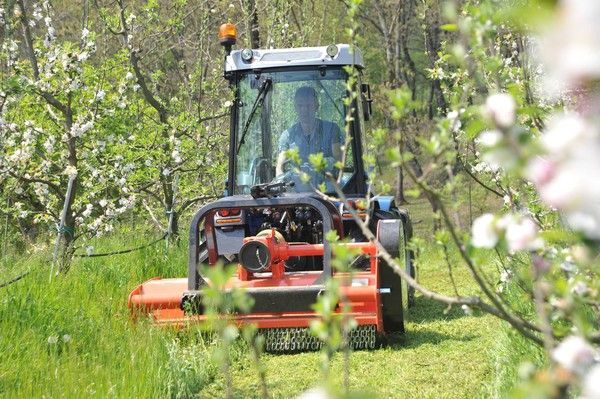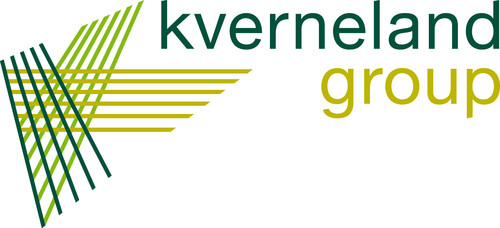
FederUnacoma: mechanization policy and mindset
Federation President Massimo Goldoni talks about the recent European elections and the "promise of reform" in his country. Closer contacts with the political arena at the national and European Union level and the launch of specific and well organized plans. Great attention for the Milan EXPO and focus on the contents: more technology and innovation and less "agricultural romanticism".
President Goldoni, the recent European vote provided a response which, in fact, strengthened the current government and encouraged it to pursue the line of reform...
There is no doubt. On the eve of the semester of the Italian Presidency of the Council of the European Union I would say that the outcome of the election restores authoritativeness to our country which would have found it difficult to take over leadership of EU policy with a strong domestic anti-European component. However it would be a mistake to interpret the ballot box results as a definitive response because the work of the government has only begun.
Confindustria President Squinzi said at a general assembly held at the end of May that the outcome of the vote carried in itself a strong desire for reform.
President Squinzi is right. Moreover, in all these years the Confindustria attitude towards the political word has been pragmatic, evaluating the work of the legislature and government on the basis of efficiency and concrete reality without ideological prejudice. In substance, the formule for relaunching the economy has to work at the level of practicality rather than be plausible at the theoretical level.
At this Confindustria assembly Development Minister Federica Guidi that the engine driving the economy is the profits of enterprises and they must work to restore profitability for themselves.
Certainly! And this doesn't mean negating those principles of sustainability and social responsibility which have been developed over the year by these enterprises and for which there are great expectations on the side of the world of work and public opinion. The prosperity of the enterprise today is linked not only to competitiveness of products but to the public consensus it's able to win thanks to good relations with the territory, environmental sensitivity, the correct use of resources and sound cooperation with its partners at home and abroad. The profits of enterprise increasingly depend on its good reputation and responsible policies but all this is difficult in a time of crisis because the financial margins are reduced as well as is the capability to invest through a longsighted policy.
So economic recovery requires a new social pact...?
The first pact that has to be established is between enterprises and public institutions which, in part, represent the collective interests taken up in social responsibility policies. And here relations are still unbalanced. The state makes enterprises pay too many taxes and is too inefficient and this weakens the ability to make investments in policies with greater sustainability as well as in research and innovation policies, those for internationalization, professional training and so on, those with important repercussions on work and social progress.
So the ability to deal with those in the political world and institutions is a fundamental objective for the world of producers?
This is true as never before. In encounters with the minister for agricultural policy, Martina, we've able to bring up crucial and urgent questions regarding our sector and I thank the minister for having dedicated considerable attention to the issues of mechanization. As a technician in the agricultural sector, Martina knows the importance of mechanization for relaunching agriculture and the recovery of competitiveness for our products. A number of politician initiatives are needed for this field because the Italian agricultural system is finding it difficult to invest and is showing no sign of recovery.
And yet the country's general economy appears to be making a slow recovery and for this year GDP growth is expected to come to 0.7% and continue improving over the two years following.
Unfortunately, an ongoing decline is still being reported for the agricultural mechanization sector. The registration figures for the first four months of the year show a 2% drop for tractors, more than a 6% decline for transporters and even a fall of 46% for combine harvesters, data which further aggravate already strongly negative figures accumulated over the past six years. In summary, with this beginning of the year, we can't expect significant improvements even through the national economy looks to be recovering. Our market unfortunately feels the variables and uncertainties which still weigh on farming enterprises and can be sustained only through greatly articulated and specific policies.
What are the proposals FederUnacoma is laying out for the government's attention?
They regard, of course, measures for the support of the domestic market. We know that with the present condition of the budget it will be difficult to bring in new measures for the renewal of the machinery inventory, though this is extremely important for farming enterprises as well as the mechanization industry. But we think it will be possible to complete a package of measures on key issues such as greenhouse gas emissions, land maintenance and the prevention of hydro-geographic emergencies which cannot fail to include specific headings for the purchase of new generation mechanical means.
Then there is the issue of European Union funds and their use....
If we examine the requests for financing in the framework of the upcoming Rural Development Plans we see that the headings for the acquisition of agricultural machinery are not used much. We know for certain that after six years of investments reduced to the minimum, farming enterprises have to acquire new mechanical means and we are aware of the interest farmers are showing in innovations, crowding into trade fairs and expositions of agricultural machinery, those which are strictly local and up to the great international attractions like EIMA.If this interest is not transformed into purchasing decisions, even with public funds available, this is a sign the RDPs are not being taken full advantage of on the side of mechanization. So among all the measures we intend to negotiate with the government and regions we want to add ways to disseminate information on the opportunities offered by the rural plans precisely for mechanization.
Other than the RDPs, what instruments which can be enacted in EU quarters?
At the head of everything is the question of the new Common Agriculture Policy and the impact this will have on farmers. Our production system has been suffering in these years as the result of the directions taken by the CAP so it must be hoped that a new balance is achieved to allow the Italian enterprises to stay on the market in a competitive way. We will pay close attention to the instruments the European Union makes available for the agri-industry production chains – the bioenergy production chain the first among them – and trust in the good work performed by such experts as Paolo De Castro who scored a great success in the last European elections and with the conviction that now more than ever before work on policy must be entrusted to people with competence in the area and an ability to listen.
Made in Italy in the agri-food sector will be at the center of attention for the entire year in light of the EXPO 2015 focus precisely on agriculture and food products.
The EXPO is an appointment Italian agriculture and the associated industries must face with great entrepreneurial spirit and pride and I think the Made in Italy mechanization sector will also be present with the spell it casts and extraordinary potential. One must be careful however. The container, Feeding the Planet, the theme of the exposition, conveys only in part the excellence of our food and the most ancient diet traditions in our country. The challenge we'll be called on to face is, first of all, agricultural industrialization taken to high productivity and high quality standards also for the big commodities. Ahead of niche production and all the expressions of 'agricultural romanticism', though they are an enormous heritage of our country, must come the presentation of a vision of agriculture as a sector technologically in the avant-garde, an extraordinary resource for the economy and a symbol of intelligent relations between humankind and the planet's resources.








